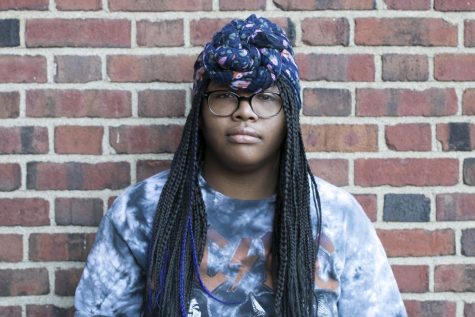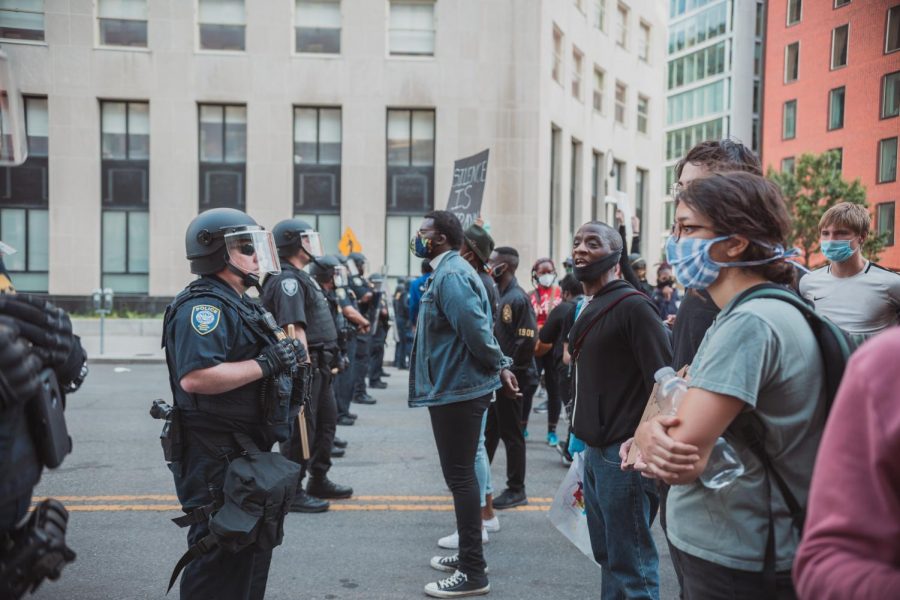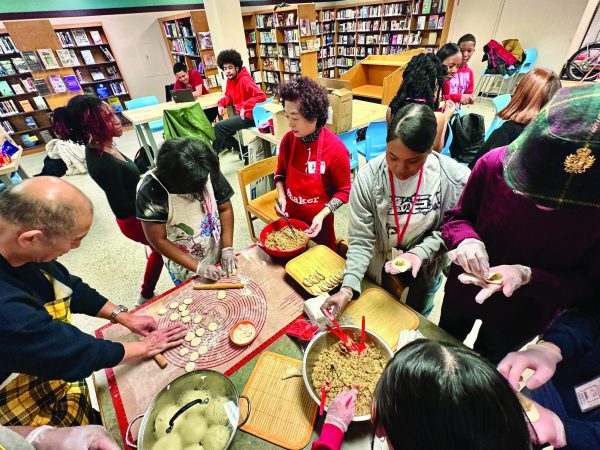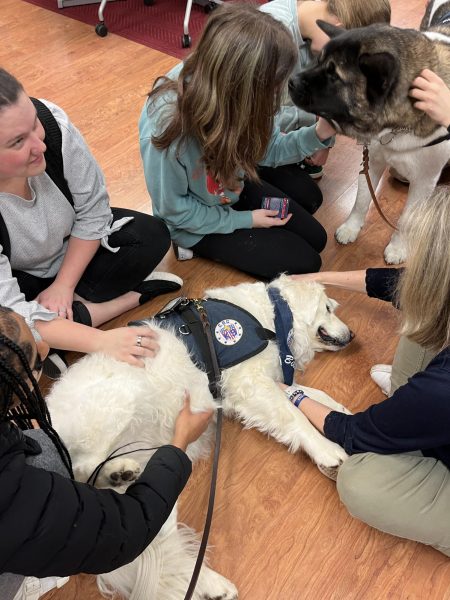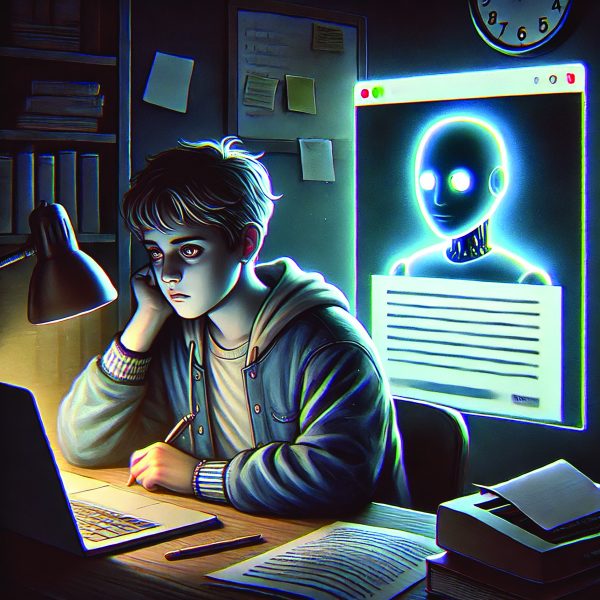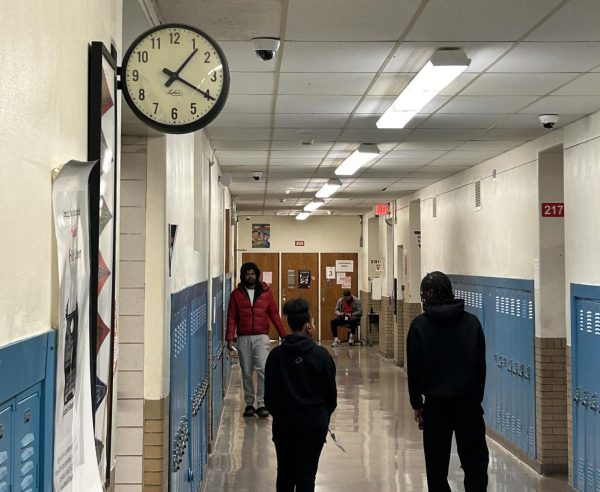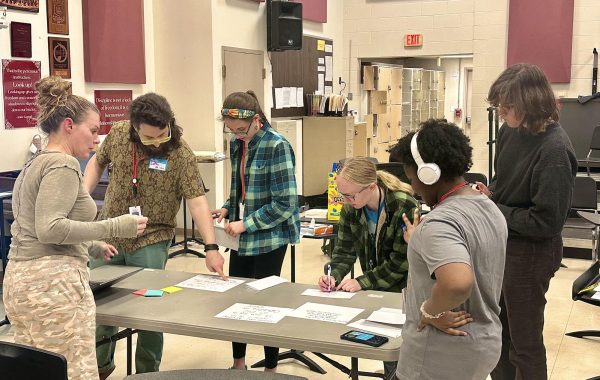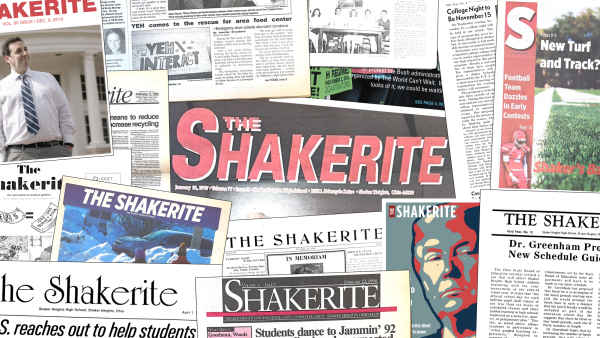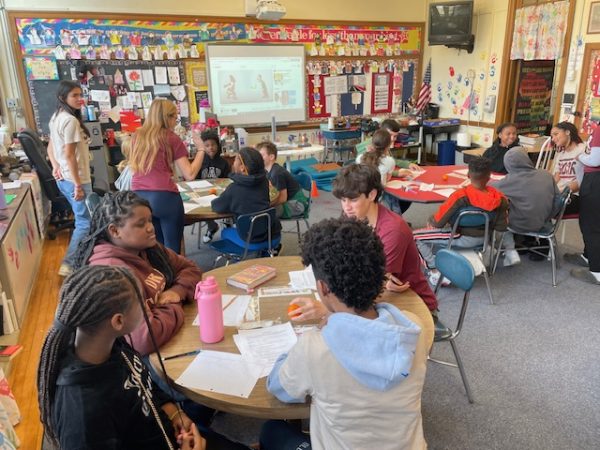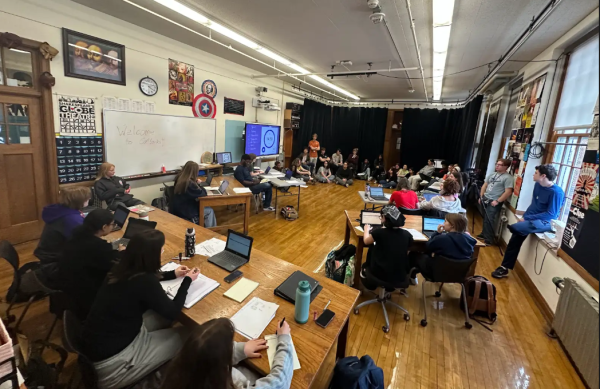Liberty And Justice For Whom?
Police brutality continues while we ask the question, how much more can we endure?
Protestors gather in Washington D.C following the death of George Floyd
When a Minneapolis police officer killed George Floyd, a 46-year-old black man, by kneeling on his throat for eight minutes while his three fellow officers held Floyd’s legs down and bystanders pleaded for him to stop, people wondered if we would finally see the end of police brutality in America.
When Kenosha police shot Jacob Blake in the back seven times, we stopped wondering.
Police brutality has been a worldwide issue for decades, and it doesn’t seem to be getting any better as time goes on. Lives are being snatched away with no remorse, Black lives to be specific. Black people are three times more likely to be killed by the police than white people, according to the research collaborative Mapping Police Violence, which collects comprehensive data on police killings nationwide to quantify the impact of police violence in communities.
Senior Sanai Johnson said she watched the video of George Floyd’s killing repeatedly. “I watched his death multiple times,” she said. “I was shocked that they killed him so slowly, in broad daylight. It hurt me in my chest.”
Some tried to use Floyd’s criminal record to justify his murder. “I feel like it’s dead wrong that people are bringing up his criminal record because they are only doing it to justify his death,” Johnson said.
Breonna Taylor, a 26-year-old black EMT, was shot eight times and killed when Louisville police entered her home on a no-knock warrant looking for a suspect who did not live there and was already in police custody. A no-knock warrant is issued by a judge and allows officers to enter the targeted property without notifying those inside first.
Her boyfriend, Kenneth Walker, shot back at the officers when they entered and was arrested. He is now free with all charges dropped.
“It was too crazy to believe. I know the police are capable of crazy things, but that was too horrific to be true,” Akira Teague, a Chicago resident, said. Walker should be free, she said. “He didn’t know who was in his home and had every right to shoot the intruders,” said Teague, “especially since they had no reason to be in her apartment in the first place.”
On Aug. 23, Kenosha police shot Blake, a 29-year-old Black man, seven times in front of his three children. Blake is now paralyzed from the waist down and remains hospitalized but was also cuffed to his bed once he was stable and awake.
“I was pretty sad when I first heard about it, but now I’m livid,” a Shaker senior who did not want to be identified said. “First, they shoot him in an attempt to kill him in front of his children. He isn’t dead, but I’m sure he isn’t’ too thrilled about being paralyzed. Cuffing him to the bed is the icing on the cake. Why put him and his children through more distress by cuffing him to the bed?” they said.
Students I spoke to about their views and experiences with law enforcement said they definitely have some ill feelings toward the police. “They make me nervous. You never know what kind of cop you will encounter. It’s scary. I think to myself, ‘Let me not act a fool because he could kill me.’ I don’t like the police but I make sure to act accordingly when they are around,” said a Cleveland Central Catholic senior who wanted to remain anonymous to protect their views from their family.
You may have heard the acronym “ACAB,” which means “All cops are bastards.” Some people object to the acronym because they have relatives in law enforcement. I know not all people who are cops are bad people, but all cops are bad because they chose to join a corrupt “justice” system which contributes to the injustices of systematic racism, police were initially slave patrol and night watch and that should tell you all you need to know.
“ACAB is something I stand by and chant. People take it and say, ‘Well, not all cops!’ like we already don’t know that. The point of it isn’t always that we hate cops; we hate what they are capable of and how having a badge protects them from repercussions,” Teague said.
I spoke to my white friends about police brutality to compare experiences, and I was not surprised by the responses. “I have never had a negative encounter with the police, being a white male,” Nathan Dewey, a Shaker senior, said.
My’Lisa Ingram, a friend of mine who is very outspoken when it comes to Black issues, said police don’t fear consequences for brutality.
“It’s clear for the world to see that American police feel like they are above the law,” she said. “There may be some who care and do what’s right, but there are way too many who do what they want to do.”
As a Black woman affected by this issue directly, times have been hard and they just keep getting harder. I’m very proud of my people and the allies we have standing with us, but it’s also terrifying because these protests can turn bad quickly with the police abusing the power they are given. Something I can’t wrap my mind around is that people are more vexed about stores being looted than the lives lost at the hands of the people who are supposed to “protect and serve.” The windows and merchandise can be replaced, but those lives simply cannot.
Some may argue that rioting and violence will accomplish nothing, but we weren’t even the ones who started the violence, and violence has been the language of America from the beginning, Black people were brutalized and brought here, against their will.
The Boston Tea party? Violence. The Civil war? Violence. Don’t you dare tell Black people how to protest; you can’t be upset with the way the people make themselves heard when we’ve been silenced for centuries. Martin Luther King, Jr. said himself, ”Rioting is the language of the unheard.”
Silence is violence. Using your voice to speak up is what scares the naysayers.
“The reason people have a problem with it now is because we’re not being silent about it anymore. I don’t care — they can burn this whole thing down and I would throw confetti,” said Shaker senior Sanai Johnson.
According to Forbes, an estimated 4,440 people have been arrested and 6,200 National Guard members have been deployed to stand on the front lines since protests began. Now, think about the fact that the police arrested 4,440 people to avoid arresting the “officers” that have taken these innocent lives away. But even if every police officer who shot a defenseless Black person were quickly arrested, outrage would not end.
“I feel like there would still be protests if the cops were arrested immediately because you can’t just arrest some cops and think that makes it right,” Johnson said, “At the end of the day, cops are still dangerous and brutalize people because they can. Everyone knows that and can see it clear as day now,”
Me, personally? I was brutalized by the police for simply walking through a suburb that I lived close to while trying to get home. I watched officers brutalize my grandfather while I was in the car because he “fit the description” of a suspect in a carjacking — even though his car is in his name and they knew that. I was cuffed and left in the cold at 10 years old because I was accused of stealing a candy bar out of a corner store. At 15, I was pulled up on by the police while with a group of friends and treated like legit criminals because we were too “loud and belligerent” while playing in a public park. I’ve been called a “black bitch” by a white girl while her friends sat and laughed but were too scared to do anything about it because her father is a police officer, and I know what could be done to me if I were to touch her.
While protesting I was hit with a rubber bullet. (They don’t feel like rubber, if you were wondering). I’ve had four officers tackle me and cuff me for literally nothing during protest, I have been hit with tear gas for standing hand and hand with the other Black people at a peaceful protest, and I will never know why.
Maybe we were scaring thousands of grown men and women — equipped with bulletproof vests and heavy artillery — with our conjoined hands because they know that when Black people come together and use our voices, we are stronger than anything you have ever seen.
Comment using your Facebook, Yahoo, AOL or Hotmail account
